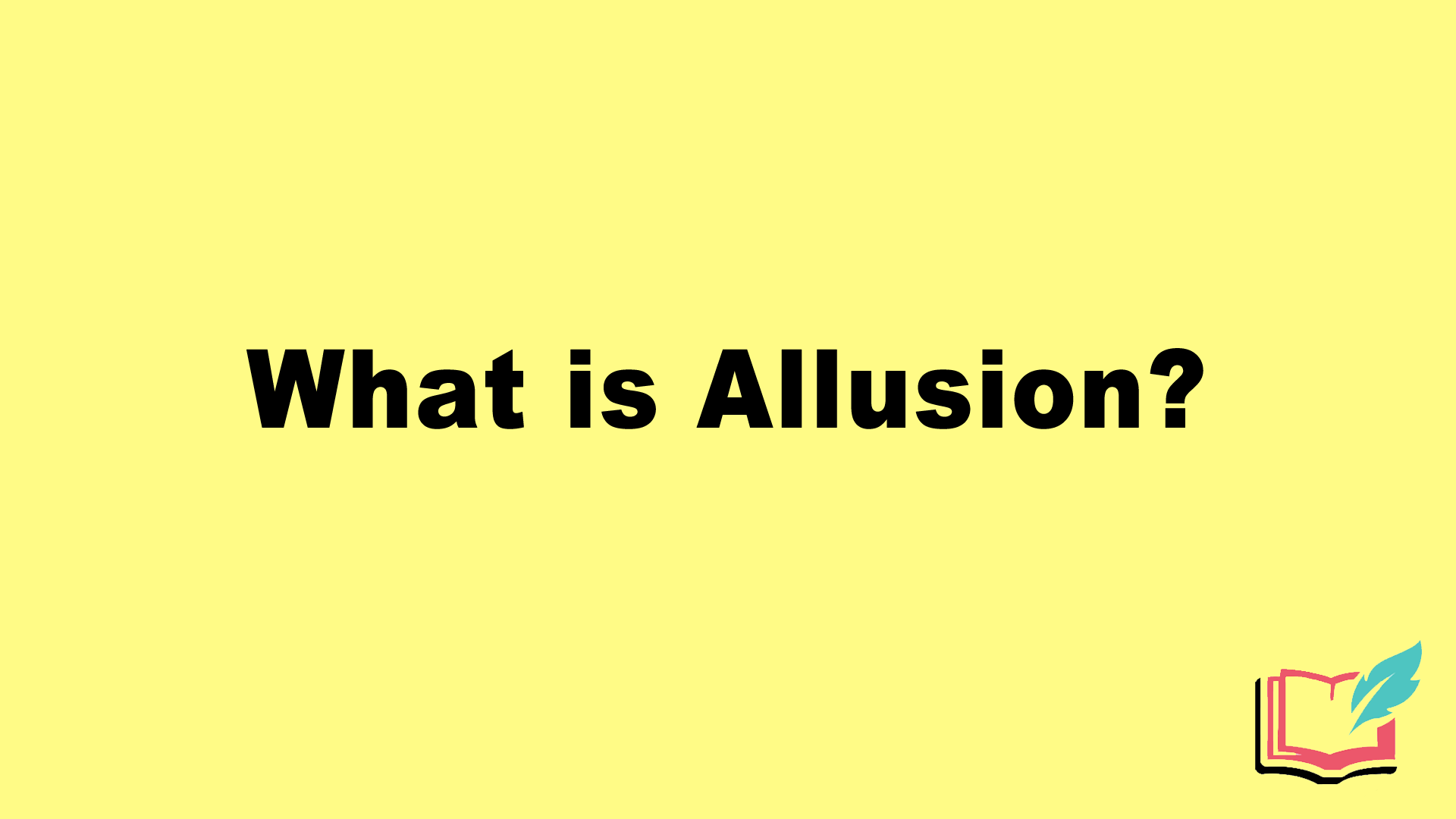
Allusion is a casual or indirect reference to a person, place, or thing of significance. Allusion does not describe or provide any detail to what was referenced, and it is generally assumed that the reader or audience knows the reference and can understand its importance.
What is Allusion?
Simply put, allusion is a reference to something else. In literature, allusion is often used to refer to important cultural subjects or details. The most commonly alluded to book is The Bible.
Allusion does not describe the thing that is being alluded to because of this tendency for it to be culturally significant or at least widely understood by the audience. In this way, allusion relies heavily on the reader’s ability to have pre-existing knowledge or to be able to look more deeply into the allusion.
Current Examples of Allusion
Many every day phrases of speech are actually allusions to literature and popular culture.
Consider the following examples:
- “She opened Pandora’s box with that question.” This refers to the Greek myth, “Pandora’s Box,” in which Pandora opened a box that released suffering into the world. This allusion is used to refer to any time someone opens a situation up to trouble.
- “That kid is a regular Einstein.” This refers to famous scientist Albert Einstein. A statement like this would be used to imply that the kid is incredibly smart by alluding to one of the most famous scientists.
- “Don’t be such a Scrooge!” This is something you are likely to hear in the holiday season. It alludes to Charles Dickens’ A Christmas Story. The character Ebenezer Scrooge hated Christmas and was miserable and spiteful all throughout the season. This kind of statement would describe someone who is not in the holiday spirit.
The Importance of Allusion
Allusion can refer either to something completely separate from the work it occurs in (external allusion), or it can refer to something that occurred earlier in the writing (internal allusion). Both types of allusion serve to help writers emphasize important information without taking a tangent to do so.
Furthermore, allusion can help provide a simplified way to portray complex ideas or human emotions. This works by allowing the writer to use something that already exists to conceptualize the idea, rather than having to create a whole new context, metaphor, or even allegory to do so. Doing such a thing could be distracting from the main point or pressing ideas, so allusion provides a way to add context without drifting away from what’s immediately relevant.
Allusion Examples in Literature
Poet John Milton’s Paradise Lost is a great example of allusion because of its many references to The Bible and characters in The Bible.
Of man’s first disobedience, and the fruit
Of that forbidden tree, whose mortal taste
Brought death into the world, and all our woe,
With loss of Eden, till one greater man
Restore us, and regain the blissful seat,
Sing heavenly muse, that on the secret top
Of Oreb, or of Sinain, didst inspire
That shepherd, who first taught the chosen seed…
Another classic that is full of religious allusion is Dante Alighieri’s The Inferno which describes Hell in the format of a literary story:
And I — my head oppressed by horror — said:
“Master, what is it that I hear? Who are
those people so defeated by their pain?”
And he to me: “This miserable way
is taken by the sorry souls of those
who lived without disgrace and without praise.
They now commingle with the coward angels,
the company of those who were not rebels
nor faithful to their God, but stood apart.
The heavens, that their beauty not be lessened,
have cast them out, nor will deep Hell receive them —
even the wicked cannot glory in them.
Joseph Conrad’s Heart of Darkness alludes to the Fates from Greek mythology. The Fates were the forces who wove together life threads and controlled when any particular person’s thread must be cut short. The knitting women refer to the Fates and help to create an ominous vibe:
I began to feel slightly uneasy. You know I am not used to such ceremonies, and there was something ominous in the atmosphere. It was just as though I had been let into some conspiracy – I don’t know – something not quite right; and I was glad to get out. In the outer room the two women knitted black wool feverishly. People were arriving, and the younger one was walking back and forth introducing them. The old one sat on her chair […]. She wore a starched white affair on her head, had a wart on one cheek, and silver-rimmed spectacles hung on the tip of her nose. She glanced at me above the glasses. The swift and indifferent placidity of that look troubled me. Two youths with foolish and cheery countenances were being piloted over, and she threw at them the same quick glance of unconcerned wisdom. She seemed to know all about them and about me too. An eerie feeling came over me. She seemed uncanny and fateful.
Recap: What is Allusion in Literature?
Allusion is a literary device used to refer to something else in order to enhance meaning. Allusion can either be used to refer to an idea or subject outside of the current text, or it can be used to refer to something that occurred earlier in the same text.
Either way, allusion helps to contextualize a subject without making it necessary for the writer to take time to fully explain the idea at hand in their own words.
